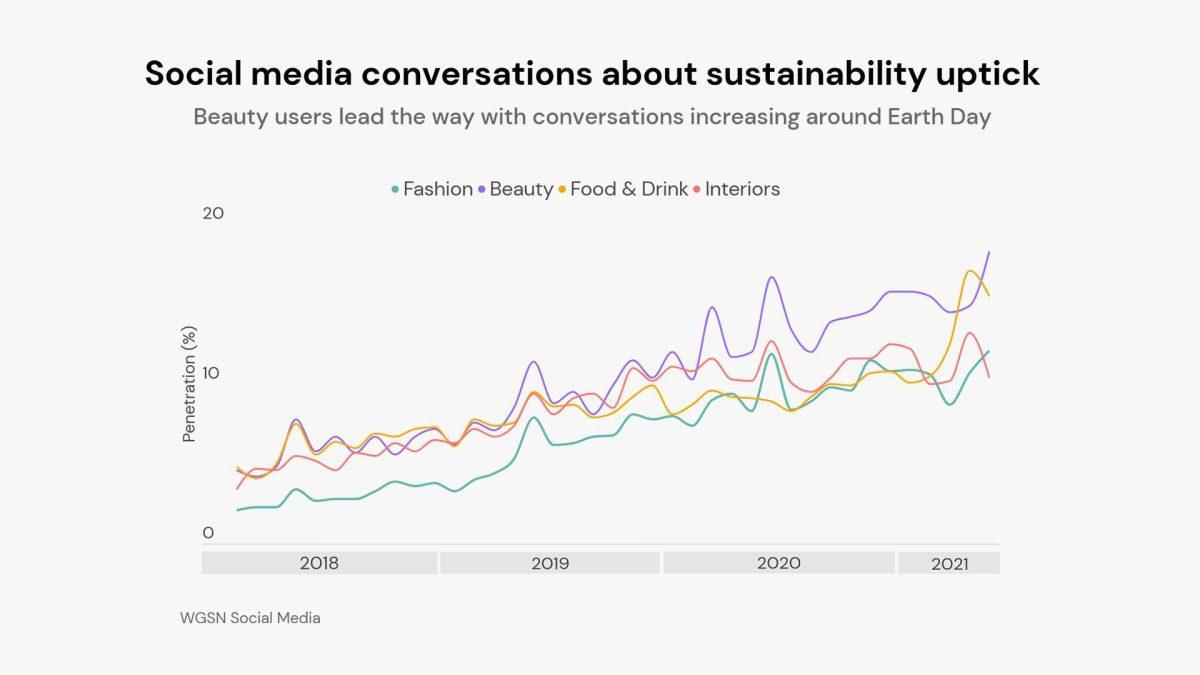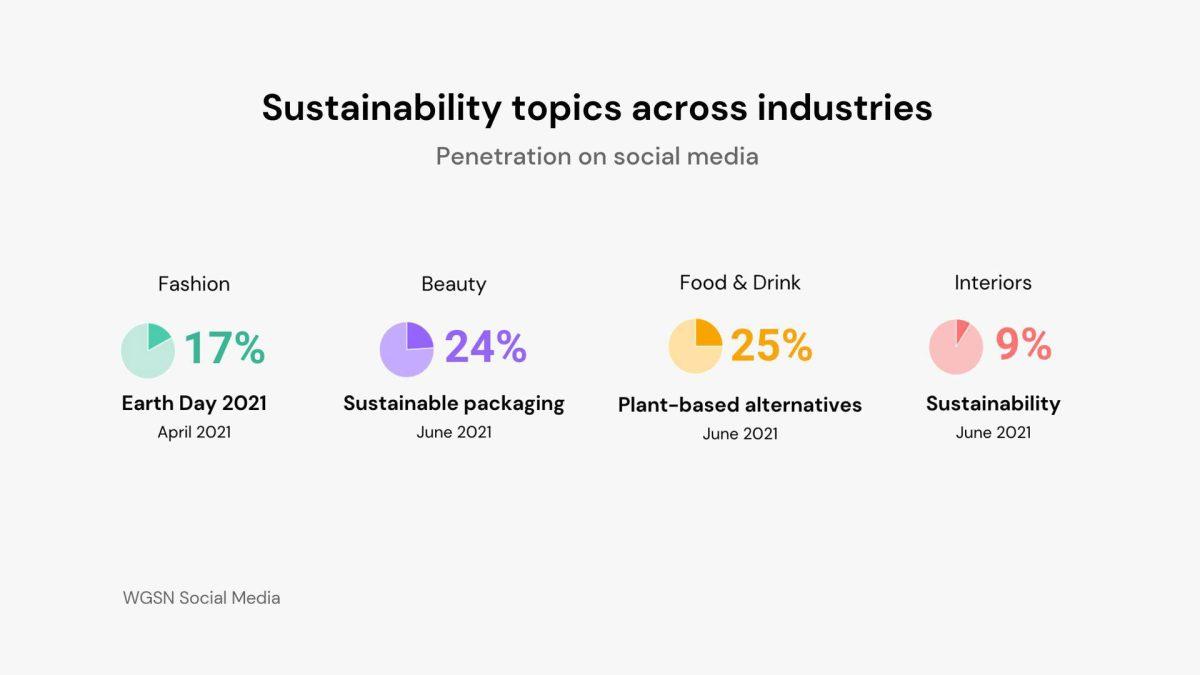SINGAPORE – WGSN, the global authority on trend forecasting, today releases Create Better: Innovating Towards a Sustainable Future, a white paper that outlines the key consumer mindsets shaping the conversation on sustainability and the actionable strategies to engage with them.
WGSN social media data shows that sustainability continues to be a key priority, with the topic remaining relevant among beauty, fashion, interiors, and food and drink influencers across social media. Furthermore, findings from a 2020 World Economic Forum survey found that 86% of respondents want to see more sustainable and equitable products in the post-pandemic market. Brands will need to engage with the key consumer mindsets to thrive in this growing market.


WGSN highlights the following three consumer mindsets:
- Democratic sustainability: The value-driven consumer, whose sustainability expectations are focused on both the price point and accessibility of products and services. Increasingly driven by value for money and a need for independence, this cohort will seek convenient, local solutions that simplify their life and give them a regained sense of control.
- Active sustainability: The purpose-driven consumer is channelling their fears about the climate emergency into hope and action. They are willing to adopt new behaviours in order to reduce their ecological footprint and want to participate in changing the world for the better.
- Outsourced sustainability: The disengaged consumer – this cohort is driven by a sense of mistrust in institutions and rejects the responsibility of minimising their personal environmental impact. Instead, they place their expectations on businesses to step in and lead environmental transformation.
WGSN has identified the following strategies to engage with these consumers:
- Focus on affordability and accessibility: 63% of consumers consider value for money a key purchase driver, according to research from KPMG. Brands will need to prioritise convenience and affordability when engaging value-driven customers with more sustainable offers, products, and services.
- Help consumers buy more sustainably: 57% of consumers are willing to change their purchasing behaviour to be more responsible, according to an IBM Institute for Business Value survey. Brands looking to engage purpose-driven customers should provide products that support a shift towards more sustainable purchasing, from personal carbon footprint-tracking apps to zero-waste options.
- Build trust with educational material: According to a State of Plastic Recycling report, two-thirds of adults do not recycle all their plastic waste due to a lack of information and confidence in the recycling system. Brands wanting to win over disengaged consumers should provide truthful and reliable content that helps them navigate complex topics related to sustainability, such as instructions on how to recycle products at the end of their lifecycle.

Carla Buzasi, President & CEO, WGSN, commented, “Governments, businesses, and individuals are using the upheaval of the pandemic as a chance to reset, and this has become intrinsically linked with building back more sustainably and equitably. For brands, this represents immense opportunities, but also great risks for those that don’t move with the moment. Our white paper provides a toolkit to thrive in this time of transition, outlining the areas where businesses can win, the strategies for success, and the consumer profiles brands need to be talking to now.”
Create Better: Innovating Towards a Sustainable Future is led by the expertise of WGSN’s Sustainability Board, a highly active, dedicated steering group of in-house, cross-industry, sustainability ambassadors.
Francesca Muston, VP Fashion Content, WGSN, commented, “Our WGSN Sustainability Board is a steering group made up of passionate in-house experts who guide our business and our clients on fast-evolving sustainability information and practices, ensuring our content supports our clients in moving to a circular and regenerative design system.”









